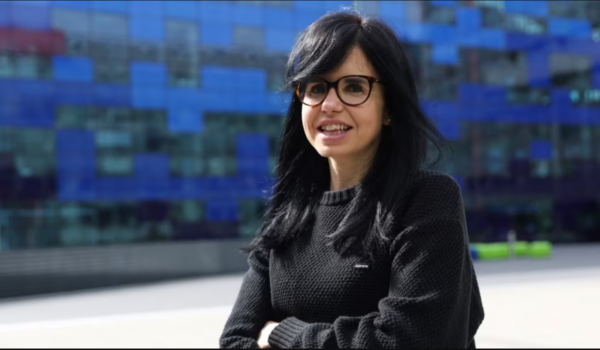Jessica Wade spends her time at Imperial College London in a laboratory filled with spectrometers, oscilloscopes, and men.
She writes Wikipedia biographies at night about women researchers like herself who lack an online presence.
“We cannot simply cry about the need for more women in science. We must recognize and venerate the women scientists we have,” she told AFP.
And I believe that telling their stories and ensuring that the world recognizes their accomplishments is a crucial method to accomplish this.
Since 2016, Wade, age 34, has worked at the imposing Imperial campus in west London.
As a physicist, she is engaged in the development of new generations of carbon-based semiconductors to improve the energy efficiency of optical and electronic devices such as televisions and solar panels.
She leads a staff of five individuals within a larger team of about fifteen. There is only one other female scientist among them.
Wade bemoaned the dearth of interest in science among girls whose parents are not scientists, stating that science is “heavily dominated by men.”
“As soon as I walked into a physics department with a majority of men and a majority of people from white, privileged backgrounds, I realized that not everyone is able to study physics, and not everyone is enthusiastic about it,” she continued.

This lack of diversity impacts the science we conduct, the questions we ask, the directions we pursue, the manner in which we translate our innovations into society, where these types of devices are actually used in the world, and who they benefit.
Visibility
Wade now aims to “bring science to more people” but discovered “knowledge gaps” in the free, multilingual, collaborative encyclopedia on the internet.
“Wikipedia is an amazing platform because it’s used by everyone in society,” she said.
“Every month, 15 billion access nodes use it. When seeking information, parents, teachers, policymakers, journalists, scientists, Amazon, Alexa, and Google Home all use Wikipedia.
She added, however, that there is one major issue: “Approximately 90% of Wikipedia contributors and editors are male, and only 19% of English-language Wikipedia biographies are about women.”
In 2018, Wade set out to rectify the disparity and has since written nearly 2,000 pages by herself, one per night, at home, after dinner.
“They each take over an hour, which is already too much of my life,” she laughed.
However, she is unfazed by the daunting challenge.
She stated, “I don’t see it ending anytime soon.”
In actuality, the research itself generates additional work, as she frequently discovers additional women scientists while writing another biography.
Kim Cobb was the subject of Wades’s first Wikipedia biography entry.
She saw her at a conference, but after researching her on Wikipedia, she discovered that there was no information about her oceanographic research.
Acknowledgment
Wade, who is now part of a network of women editors and leads workshops on how to write for Wikipedia, asserts that a person’s online presence and activity make them discoverable.
“Little girls who are Googling something, say sea urchins, will click through and land on a Wikipedia page about a fantastic woman scientist who contributed to that,” she said.
“If you’re trying to nominate someone for an award, invite them to be a fellow, or invite them to give a lecture, you always Google them, and if their biography is nicely summarized on Wikipedia, it’s so much easier to write their citation or reference.”
This was the case for 92-year-old African American mathematician Gladys West, whose profile was one of Wade’s first.
Beginning in 1956, when racial segregation was still in effect in the United States, she spent 42 years developing navigation systems for the navy. Her calculations ultimately contributed to the creation of GPS.
“I researched Gladys to write her page, but there was so little information about her online; she was nearly 90 years old and no one had honored her,” she explained.
“I published her Wikipedia page in February 2018, and by May 2018 she was ranked among the top 100 women in the world by BBC.”
Then, she was inducted into the US Air Force Hall of Fame and awarded the Royal Academy of Engineering’s Prince Philip medal, which had never been awarded to a woman before.

